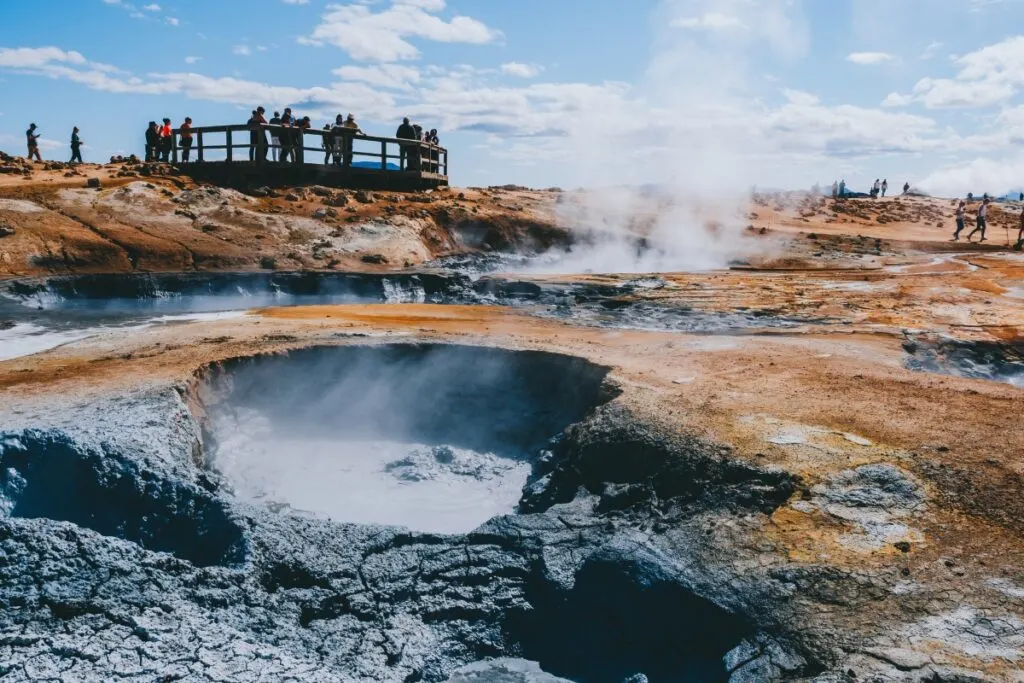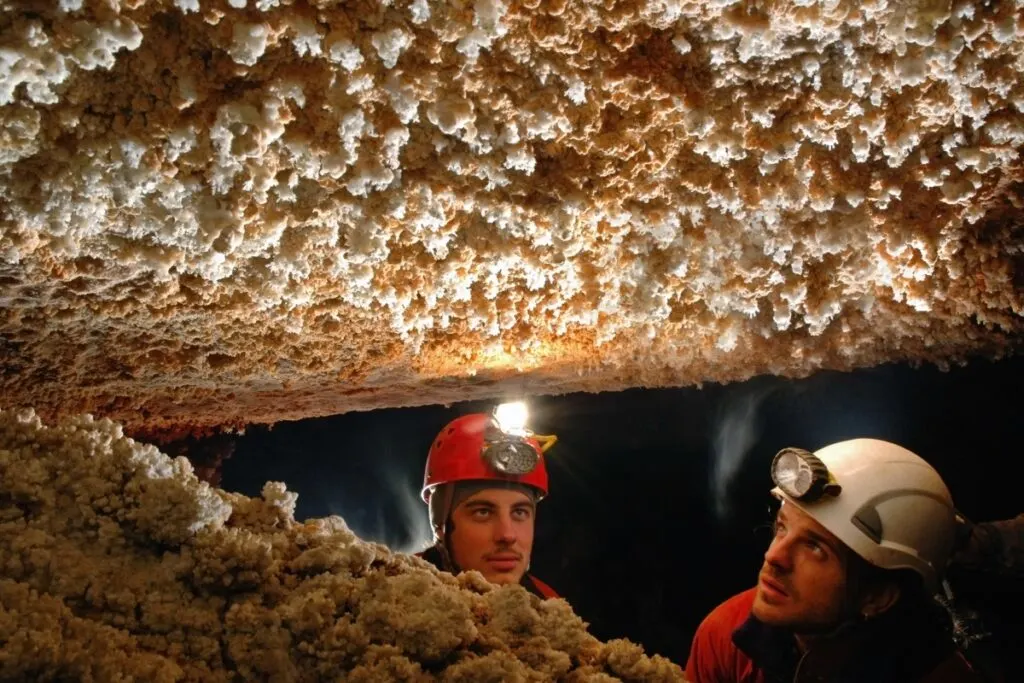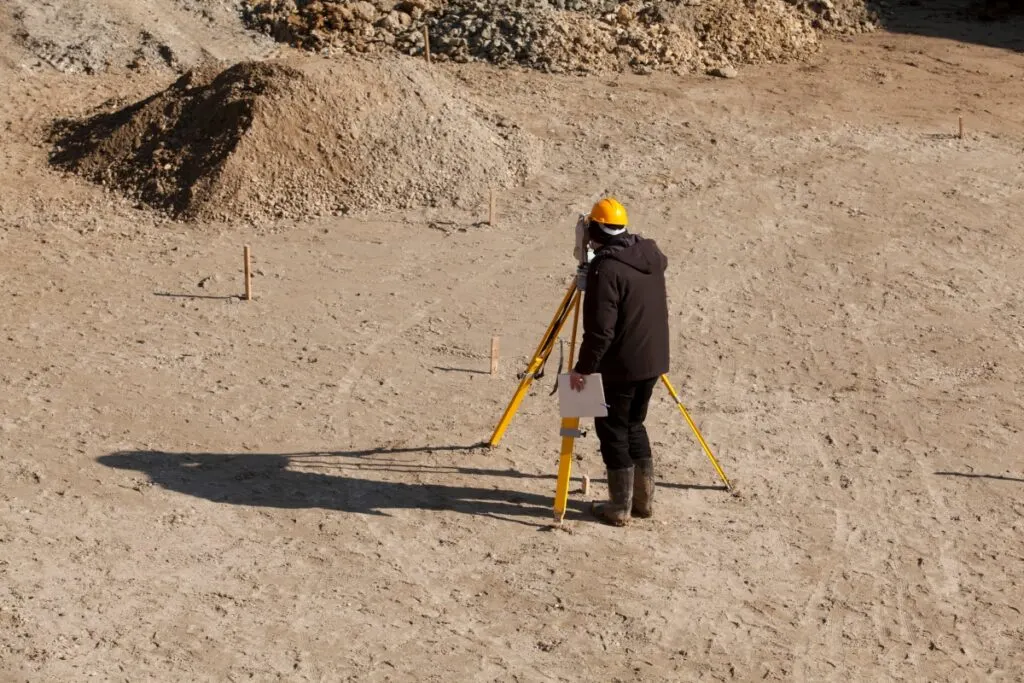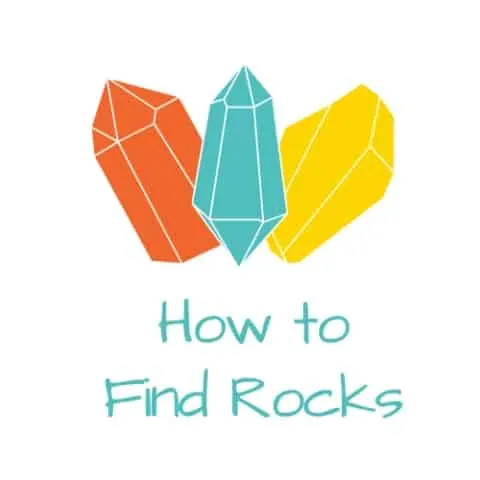As an Amazon Associate, I earn from qualifying purchases with no additional costs for you.
Geology and geography are very closely related sciences as they both study the same object – the planet Earth (although there is also planetary geology and geography). However, at the same time, they study different components of the planet on different scales.
- Geography translates from Greek as “describing the Earth.” This science studies the Earth’s physical features, phenomena of Earth, human activities, and spatial relationships. Geography has been called “a bridge between natural science and social science disciplines”.
- Geology, on the other hand, studies the Earth’s solid materials and processes and delves into the composition, structure, and history of rocks, minerals, and the forces that shape the Earth’s surface. Geology translates from Greek as “explore the Earth”.
In short, the main difference between geology and geography is that geology focuses solely on the Earth’s solid shell and the processes that shape it, while geography explores the complex interactions between different components of our planet, including the components of the natural environment and human civilization.
In this article, we will explain why geology and geography are closely related but distinct sciences and discuss their main differences and similarities.

If you are interested in checking out the best books about rock and minerals identification you can find them by clicking here (Amazon link).
What is the Relationship Between Geology and Geography?
Geology and geography are very closely related fields of study as they are both part of the Earth Sciences block. But they focus on different aspects of the Earth’s physical features and processes.
- Geology is the scientific study of the Earth’s solid materials, including rocks, minerals, and the processes that shape and transform them over time. To put it briefly, geology studies:
- The history of the Earth’s solid material and how it is transformed under the influence of various factors inside and outside the Earth.
- Processes occurring inside the Earth.
- Chemical composition of rocks and minerals, their physical and chemical features.
- Where and how to search for minerals and how to extract them rationally.
- Geography, on the other hand, is the study of the Earth’s physical features, climate, landscapes, and the spatial relationships between them and between human civilization. It encompasses the examination of natural phenomena, such as landforms, rivers, climate patterns, ecosystems, and the distribution of plants, animals, and human populations across the planet. Geography also explores the human impact on the Earth’s surface, including topics like urbanization, land use, and resource management.
While geology primarily focuses on the Earth’s materials and processes, geography provides a broader context by incorporating physical, biological, and human aspects.
Geographers often draw on geological knowledge to understand the formation and distribution of landforms, such as mountains, rivers, and coastlines.
They also use geological information to interpret landscapes, analyze soil characteristics, and study the impact of geological hazards like earthquakes and landslides.
Geologists, in turn, utilize the advancements of geographers to understand the interrelationships between external factors and their impact on rocks, among other things.
In summary, geology focuses on the study of inanimate objects (rocks, minerals), while geography examines the interconnections between the components of the living world and the surrounding environment.
However, we know that living and non-living nature exist inseparably together, so studying one without considering the other is simply impossible.
Geology and geography are interrelated disciplines that contribute to our understanding of the Earth’s physical features, processes, and their interactions with human activities.
We can also say that geology provides a foundation of knowledge about the Earth’s materials and their transformations, while geography examines the spatial patterns and relationships between these features on a broader scale.
TIP: Geology is an extremely diverse science. The multitude of sub-disciplines within geology allows individuals to choose what interests them the most. Find out the main reasons why geology is not boring in the article below:
4 Reasons Why Geology is Not Boring (Explained by Geologist)
Similarities Between Geology and Geography

The common object of research in both geology and geography is our planet, the Earth (although there is also planetary geology, which studies the hard shell of other planets).
Thus, geology and geography share common ground in their approaches, methods, and interests, contributing to a comprehensive understanding of the Earth. So, there are quite common similarities between geology and geography, and we will outline the main ones below.
Earth Sciences
As we said before geology and geography are both considered Earth sciences because they study the Earth and its features. They share a common interest in understanding the Earth’s physical processes.
Overlapping Topics in Geology and Geography
There are several subfields where geology and geography intersect and overlap.
Examples include geomorphology (the study of landforms), hydrology (the study of water and its distribution), biogeography (the study of species distribution), climatology (the study of climate patterns), etc. These overlapping topics demonstrate the interdisciplinary nature of geology.
Fieldwork
Both disciplines often require fieldwork as an essential component of research and data collection. Geologists and geographers frequently conduct field surveys, collect samples, and make direct observations to study Earth’s features and processes.
BTW: Do you want to know more about rock and mineral identification? The books listed below are the best ones you can find on the internet (Amazon links):
- Smithsonian Handbooks: Rocks & Minerals
- Gemstone & Crystal Properties (Quick Study Home)
- Ultimate Explorer Field Guide: Rocks and Minerals (National Geographic Kids)
Cartography and Mapping
Geology and geography utilize cartographic techniques to visualize and analyze spatial data. Both disciplines create maps, utilize Geographic Information Systems (GIS), and employ remote sensing technologies to represent and interpret Earth’s features.
Earth’s History
Both geology and geography study the Earth’s history. Geologists investigate the geological record, including rocks, fossils, and past geological events, to reconstruct the planet’s past conditions and evolutionary changes.
Geographers also explore historical data and spatial patterns to understand how landscapes, human settlements, and cultural landscapes have evolved over time.
Spatial Analysis
Geology and geography involve spatial analysis. Geologists examine the spatial distribution of rocks, minerals, and geological structures, while geographers analyze the spatial distribution of physical and human phenomena, such as landforms, climates, ecosystems, and population patterns.
Environmental Focus
Geology and geography share a concern for the environment. Geologists study natural hazards, such as earthquakes, volcanoes, and landslides, while geographers examine human impacts on the environment, including deforestation, climate change, and urbanization.
So, we can see from all the above that geology and geography share common ground in their approaches, methods, and interests, contributing to a comprehensive understanding of the Earth.
TIP: The classification of rocks is indeed crucial in order to organize the vast amount of information about rocks. Check out the complete guide in the article below:
How to Guide: Classification of Rocks by PRO Geologist
Differences Between Geology and Geography

What is the main difference between geology and geography? Professor Mackinder gave a fairly accurate answer to this question: “Geography is the science of the present, which is explained by the past, and geology is the science of the past, which is explained with the help of the present”.
The thing is, geography studies how different components of the planet’s environment interact with each other and shape that environment (water, soil, air, sunlight, temperature, etc.), as well as how living organisms, including human civilization, interact with the environment.
All of this is studied in the present, referring to the past to trace causal relationships in the interactions of the aforementioned components of nature. Geology, on the other hand, focuses on studying the Earth’s solid shell, known as the Earth’s crust.
To do this, processes that occurred millions of years ago, shaping the Earth’s crust, are modeled based on the study of natural processes that are currently shaping the Earth’s solid shell.
Here is a table summarizing the main differences between geology and geography:
| Geography | Geology |
|---|---|
| Translated from Greek, it means “description of the Earth”. | Translated from Greek, it means “study of the Earth”. |
| Geography is the study of the Earth’s physical features, climate patterns, ecosystems, human activities, and their spatial relationships. | Geography is the study of the Earth’s physical features, climate patterns, ecosystems, human activities, and spatial relationships. |
| Geography explores the relationships between people and their environments, and the ways in which they shape and are shaped by the Earth’s landscapes. Geography is a multidisciplinary field that incorporates elements of both the natural and social sciences. | Geology study the composition, structure, and history of the Earth, aiming to understand its past, present, and future. |
| Founder – Eratosthenes (276 BC-194 BC) | Founder – Theophrastus (372-287 BC) |
| Geography typically focuses on shorter timescales, examining contemporary patterns and dynamics within the context of human activities. | Geology often deals with vast timescales, spanning millions or billions of years. |
| Geography is an extremely broad study of the interaction between humans and the natural environment. | Geology almost does not take into account human activity in the study of the processes of formation of the Earth’s solid shell. |
TIP: Geologists classify minerals based on various common characteristics depending on the sphere of geology in which the classification is used. Find out the complete guide in the article below:
How to Guide: Classification of Minerals by PRO Geologist
Conclusion
In summary, geology and geography are distinct yet interconnected disciplines that contribute to our understanding of the Earth and its features. While they share some similarities, they also have notable differences in focus, subject matter, and approaches.
Geology primarily focuses on the Earth’s solid materials, including rocks, minerals, and the processes that shape and transform them over time.
Geology studies the Earth’s composition, structure, and geological history, investigating topics such as plate tectonics, the formation of mountains, the behavior of volcanoes, the creation of rocks and minerals, and the Earth’s geological timeline.
On the other hand, geography has a broader focus that encompasses both the physical features of the Earth and the spatial relationships between them, as well as the human activities and cultural landscapes that occur on Earth.
Geography explores how physical and human factors interact and shape spatial patterns, and it analyzes the social, economic, and political aspects of different societies.
Ultimately, geology and geography complement one another, providing complementary perspectives on the Earth’s physical and human characteristics.
By studying the similarities and differences between these disciplines, we gain a more comprehensive understanding of the Earth’s complexity and the intricate relationships between the planet, its materials, and human activities.
TIP There are plenty of cool rocks in our little world. Check out the guide with tips on finding cool rocks near you in the article below:
What are Cool Rocks & Where to Find Them? Follow These Tips
